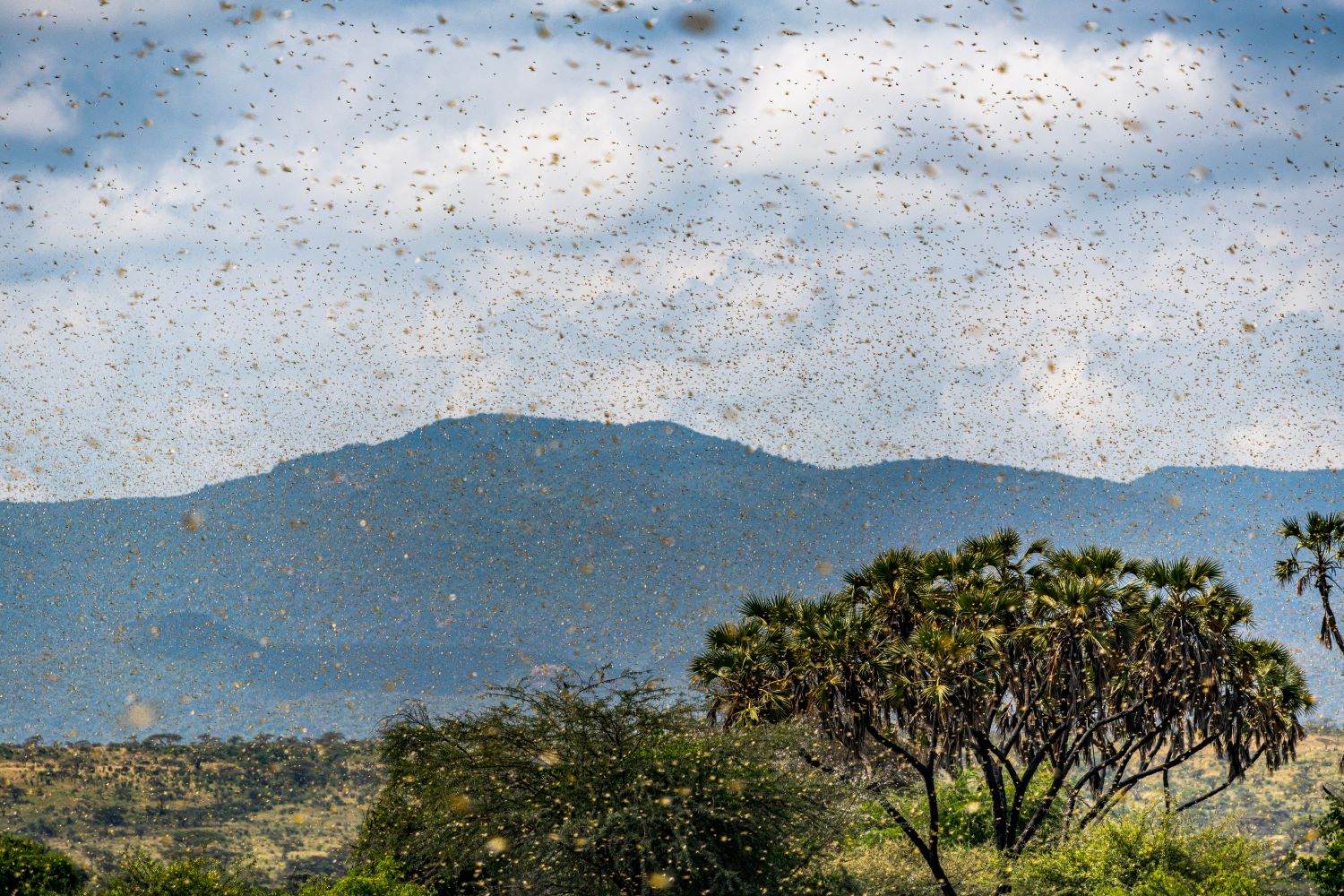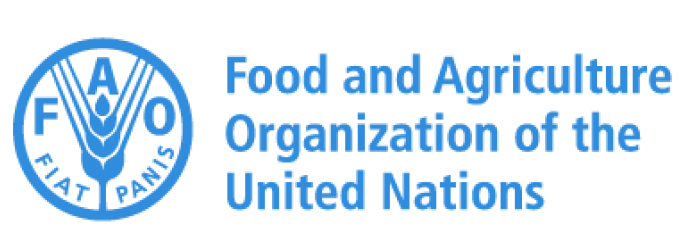There is a famous story where locusts were referred to as the plague. There is a reason why such a condemning term was, and still is, used to describe this otherwise innocent-looking grasshopper. When locusts form a swarm, they can devastate crops, particularly in many African farming regions.
 Since the advent of the agricultural revolution, humans have had to deal with many complications that continue to exist to produce enough food to feed the ever-increasing population. As new techniques and technologies have evolved, we have become better equipped to overcome these challenges. In the case of the desert locust threat in Eastern Africa, a non-governmental organization (NGO) was established in 1962 to combat these upsurges. This NGO, called the Desert Locust Control Organization in Eastern Africa (DLCO-EA), has a mission to “Promote control operations and forecast techniques against upsurges and plagues of the Desert Locust and other migratory pests,” which contributes directly to three of the UN Sustainable Development Goals, namely ‘Good Health and Wellbeing,’ ‘Climate Action,’ and ‘Life on Land.’
Since the advent of the agricultural revolution, humans have had to deal with many complications that continue to exist to produce enough food to feed the ever-increasing population. As new techniques and technologies have evolved, we have become better equipped to overcome these challenges. In the case of the desert locust threat in Eastern Africa, a non-governmental organization (NGO) was established in 1962 to combat these upsurges. This NGO, called the Desert Locust Control Organization in Eastern Africa (DLCO-EA), has a mission to “Promote control operations and forecast techniques against upsurges and plagues of the Desert Locust and other migratory pests,” which contributes directly to three of the UN Sustainable Development Goals, namely ‘Good Health and Wellbeing,’ ‘Climate Action,’ and ‘Life on Land.’
One solution that emerged involves using aircraft to apply crop-dusting of protective products to safeguard the crops against the locusts’ threat. You might wonder how ICAO fits into this picture; I will explain it here. In 2021, the Food and Agriculture Organization (FAO), also a UN specialized Agency, through successful resource mobilization within its Donor community, raised funds to procure a crop-dusting aircraft for the DLCO-EA to meet the increased surge of Locust activity in their region. Without any experience in procuring this kind of aircraft, FAO turned to ICAO for help.
 Through ICAO’s Technical Cooperation Bureau, a tripartite agreement was signed in December 2021 between ICAO, FAO, and DLCO-EA for the acquisition of the aircraft. Project activities started in January 2022, and within the year, the project was successfully completed. Fast forward to January 2023, when the DLCO-EA pilots and engineers, as well as a Kenyan Civil Aviation Authority (the plane is registered and will operate out of DLCO-EA base in Nairobi) inspector, were trained in the operations of this aircraft and the plane was ferried from the supplier factory to DLCO-EA’s base ready for use.
Through ICAO’s Technical Cooperation Bureau, a tripartite agreement was signed in December 2021 between ICAO, FAO, and DLCO-EA for the acquisition of the aircraft. Project activities started in January 2022, and within the year, the project was successfully completed. Fast forward to January 2023, when the DLCO-EA pilots and engineers, as well as a Kenyan Civil Aviation Authority (the plane is registered and will operate out of DLCO-EA base in Nairobi) inspector, were trained in the operations of this aircraft and the plane was ferried from the supplier factory to DLCO-EA’s base ready for use.
This achievement brought together two UN agencies and a NGO, in a successful partnership that has delivered the expected result within the planned timelines and available funding. A formal handover ceremony was held in March 2023 in Nairobi during the FAO’s 42nd Desert Locust Control Committee Session.
This story helps us illustrate how ICAO supports the accomplishment of UN Sustainable Development Goals in tangible ways that contribute to aviation and other vital sectors, like agriculture, in this specific case. ICAO will continue leveraging implementation capabilities through our Technical Cooperation Bureau, to enhance support for the FAO, and other UN agencies, in all their aviation-related projects and activities.
 The Food and Agriculture Organization (FAO) is a specialized agency of the United Nations that leads international efforts to defeat hunger. Their goal is to achieve food security for all and ensure everyone has regular access to enough high-quality food to lead active, healthy lives. With 195 members – 194 countries and the European Union, FAO works in over 130 countries worldwide.
The Food and Agriculture Organization (FAO) is a specialized agency of the United Nations that leads international efforts to defeat hunger. Their goal is to achieve food security for all and ensure everyone has regular access to enough high-quality food to lead active, healthy lives. With 195 members – 194 countries and the European Union, FAO works in over 130 countries worldwide.

